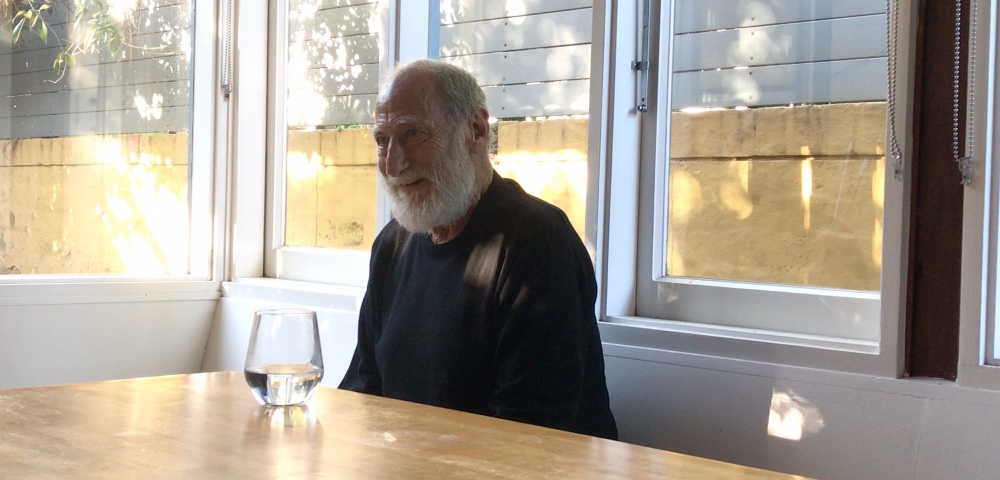

“In many ways I just can’t believe it that I’ve made it this far. It’s just that… I never thought, I never planned for an older age. It’s foreign…”
Michael, 68, is a long-term HIV survivor. His story of grief, resilience, and a future that he had not imagined he would be a part of, connects Michael with long-term survivors globally.
At the height of the HIV/AIDS epidemic in the 80s and 90s, many long-term survivors endured their early adulthood believing they would die of AIDS while burying their lovers and friends from the very health condition with which they were living with too. It felt like a time of hopelessness as they watched their community disappear, with no hope of a treatment in sight.
As a generation of young men were dying, medical treatments and an understanding of HIV/AIDS were slowly emerging. In 1996, powerful anti-retroviral treatments (ART) made it possible for people living with HIV to live longer lives, and with that for the first time, came a glimpse of hope.
A Manageable Chronic Health Condition
Forty years on, long-term survivors live in a culture where the language of HIV has transformed from being a death sentence to a manageable chronic health condition and the milestone message, “Undetectable Equals Untransmittable.”
The dramatic shift in the trajectory of the HIV/AIDS epidemic and groundbreaking HIV medication is built on long term survivors’ peaceful activism, personal sacrifices and contribution to medicine through HIV/AIDS clinical trials.
David, 66, is a long-term client of Bobby Goldsmith Foundation and has been living with HIV for 37 years. He shared with us the consequences of participating in clinical trials, the challenges he faces ageing with HIV and the frustration he feels as the focus on HIV medication and prevention neglects the issues long term survivors are now confronted with.
“I was warned by my diagnosing Doctor to be very circumspect on revealing my status due to the fear, hatred and discrimination surrounding HIV/AIDS at that time. This stigma and discrimination unfortunately have remained today. It made a horrible situation even worse. I had been told that I had a terminal disease which I couldn’t talk about. This added huge stress in my life.
After participating in 28 HIV drug trials for nearly 20 years, my body was devastated not only by the damage HIV was doing but by the side effects of the toxic drugs. Many of the more serious side effects remain today, causing great discomfort and permanent disabilities.”
On The Frontlines

David represents a courageous generation who were on the frontline fighting against HIV/AIDS and who sacrificed careers and families to participate in new treatments that would contribute to creating today’s reality where people living with HIV can imagine a future they are a part of.
Sadly, today our long-term survivors have been erased from public policy discourse and without the adequate financial, medical and social support they are falling through the cracks at a time when they are most vulnerable and socially isolated.
“The challenges of living long term with HIV are many and varied for different people. But we all face the same situation of navigating multiple premature illnesses normally seen in much older people.
Many long-term survivors also live, if not in, then very close to poverty because of health reasons – they cannot work and live solely on a disability pension. This is an enormous stress on people dealing with multiple co-morbidities both physically and mentally.”
We Must Not Forget Our History
While today people living with HIV can live long, fulfilling, and healthy lives, we must not forget our history and the resilience, strength and hope embodied by long-term survivors who lived through the HIV/AIDS pandemic.
A shift in focus on medical advancements has meant that long-term survivors and older people living with HIV are marginalised and being erased from the contemporary HIV response. Social isolation, chronic health conditions and stigma are real challenges that long-term survivors face and diminish their quality of life. The needs and requirements of long-term survivors deserve to be centred in the response to HIV, with a focus on addressing their specific challenges.
Bobby Goldsmith Foundation understands the traumatising experiences endured by long-term survivors during the HIV/AIDS epidemic. If Bobby Goldsmith himself had received the HIV medication that is available today, he would be 75 and could still be with us. Like many long-term survivors who are now in their 60s, 70s and beyond, he would be navigating the challenges of ageing with HIV.
We must remember our history and support our long-term survivors who without their strength, resilience and hope the medical privileges and resources available today might never have existed.
Nicholas Lawson is the CEO of the Bobby Goldsmith Foundation.









